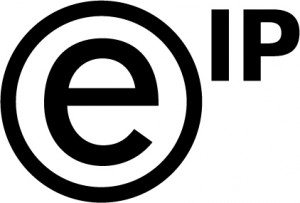With the wide variety of student and graduate work opportunities out there, it can be difficult to navigate your options. The summaries below haven been put together to help you identify what you should be doing, and when.
Graduate Job
Also called: graduate scheme, graduate programme
Graduate jobs are the number one reason that people go to university – to get a job that requires a degree. This has become the foundation of entry-level recruitment in many professions, with many larger employers creating structured training programmes to both entice and induct new graduates.
A Trainee position within the IP sector aims to develop talent and initiating recruits into the company culture, whilst preparing them for the professional exams, through a mixture of in-house tutorials and external courses. Typically this will take between 4-6 years to become a Chartered Patent Attorney and around 2-3 years to become a Chartered Trade Mark Attorney.
Most graduate scheme intakes take place in the September following graduation, with the application process opening – and often closing – during the preceding autumn term. To make the most of these opportunities, you should do your research and preparation early. Unlike other industries, the patent profession does also recruit on a rolling basis, depending on the needs of the company – so it is worth keeping an eye out for vacancies on the IP Careers website that have an immediate start date
Internships & Placements
Also called: work placement programme, vacation scheme
Formal work experience is a relatively new concept in the IP profession and as such is still quite rare. Unlike other industries where internships take place for 6-8 weeks over the summer, internships and placements in this sector typically last for 1-2 weeks over the Easter or Summer break. They are an opportunity for students to test their suitability for the role and to gain an understanding of the business, sector and commercial requirements. Completing an internship or placement could give you a competitive advantage in sector with very high standards, many employers have even gone on the recruit candidates from their internship or placement programmes. You can find out more about the emergence of work experience in the sector here.
Insight day
Also called: open day, insight week
IP firms are increasingly making a point of opening their doors to first year students, inviting career-focused candidates to spend a day (or week) learning about the inner workings of their organisation. The focus here is more on the company than the profession, but attendance at an insight day is still very much a form of work experience, and should be listed on a CV accordingly. Events like these are most commonly found over holiday periods – Easter in particular – with students advised to apply at least a month in advance.
Types of work |
|||
Programme |
Who should apply? |
How long does it last? |
When does it generally start? |
| Graduate job
or graduate scheme, graduate programme |
Finalists and graduates | Typically 4-6 years for a Patent Attorney and 2-3 years for a Trade Mark Attorney | September |
| Internship or Placement
or work placement programme, vacation scheme |
Students in penultimate year of study | 1-2 weeks | Easter or Summer |
| Insights
or insight week, open day |
Undergraduates, particularly first years | 1-5 days | Easter/Spring |





